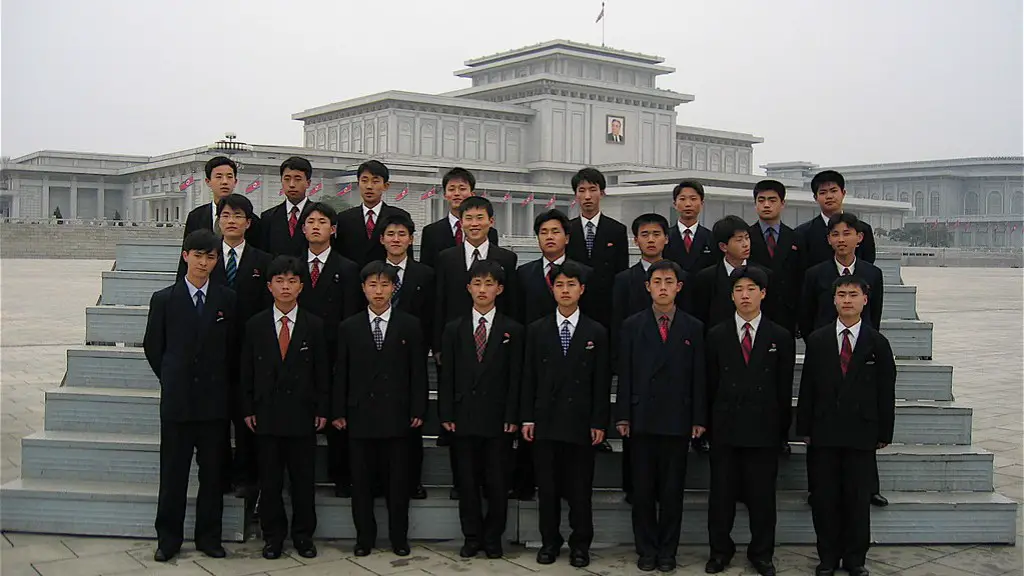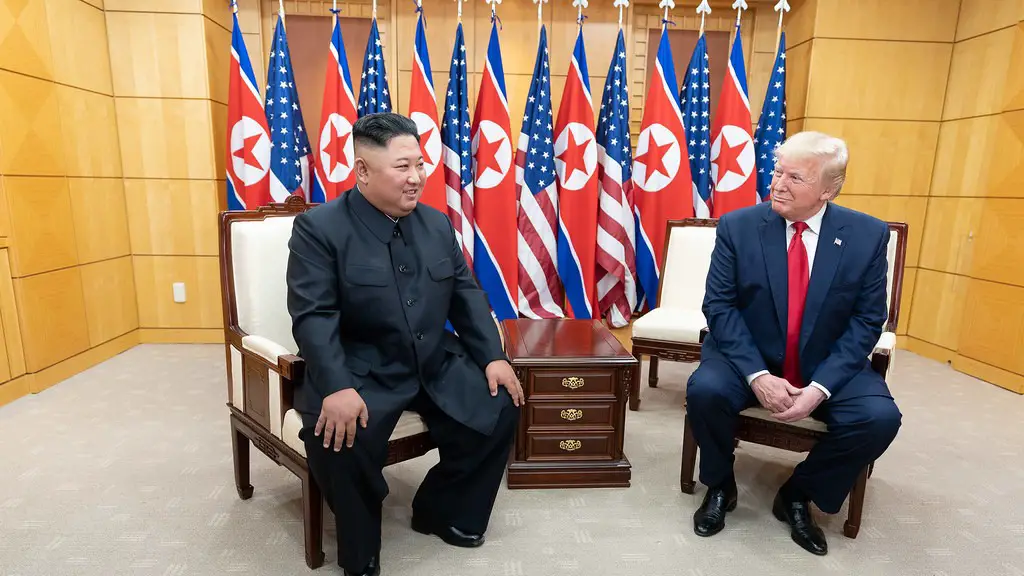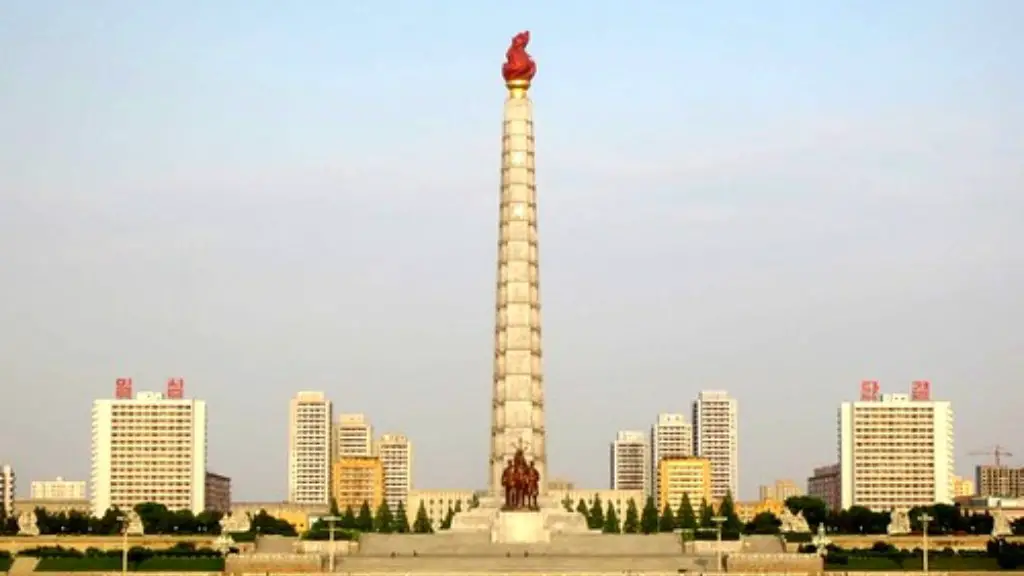North Korea is the most isolated nation in the world and is known mainly for its expansive military program. In terms of its economy, the country struggles and revenue streams in foreign currency are limited. What almost no one talks about is the country’s natural resources. It is estimated that North Korean is sitting on reserves worth at least $6 trillion, making it potentially one of the wealthiest nations in the world. In this article, we’ll take a look at North Korea’s natural resources and explore the potential sources of wealth that the country possesses.
Most notably, North Korea is known to have vast deposits of iron ore, making it a major iron producer in Asia. In terms of iron ore, there is an estimated one billion tons of iron ore reserves, most of which are concentrated in Hamgyeong Province and are ready to be mined. According to reports, the country generates 500 million dollars in revenue each year through iron ore exports. Additionally, North Korea is rich in coal deposits. The country is home to over 80 billion tons of coal reserves of various grades that have yet to be extracted.
What sets North Korea apart from many of its neighbors is the abundance of rare earth minerals. Rare earths are important for the development of high tech industries and North Korea is believed to have one of the largest deposits in the world. Reports suggest that North Korea produces up to 15% of the global rare earth supply.
North Korea also has untapped magnesite resources, which are used to produce magnesium alloys and other industrial materials. Magnesium alloys are valuable for high tech applications, such as aircrafts and motorbikes. It is estimated that North Korea possess more than two billion tons of magnesite reserves, which could bring in up to three billion dollars annually in exports.
The country is also known to have abundant deposits of zinc, copper, lead and gold. Gold mining has been a major industry in the country since 2002 and is believed to be worth up to $2 billion dollars a year. Production of lead and zinc is also increasing, with some estimates suggesting that the total reserves of lead and zinc are worth up to $2.1 billion dollars.
North Korea is also home to a large amount of natural gas, though most of it is located in disputed waters. Currently, the country produces about 5 billion cubic meters of natural gas each year and recent developments indicate that the gas fields may be worth billions. The country also has vast oil reserves, but extractions from these reserves are hampered by the political situation.
Tourism & Resources
North Korea is also home to abundant natural resources, which could be a potential source for the country’s economy. The country is home to a large number of scenic sites, including beaches and historical monuments, which could attract tourists from around the world. In addition to that, the country has also tapped into natural resources such as ginseng and mushrooms, which also brings in foreign currency.
A large number of these natural resources have yet to be used and have not been exploited properly. In theory, if the proper infrastructure was implemented, the country could tap into these resources and boost its economy significantly. That being said, the current political landscape and diplomatic situation between the U.S. and North Korea makes it difficult for foreign companies to invest in the country’s resources.
Environmental Impact
The exploitation of North Korea’s natural resources also has a huge environmental impact. In recent years, North Korea’s mining operations have come under scrutiny due to its negative effects on the environment. For example, the mining of iron ore creates a lot of dust and this dust has been linked to a number of respiratory diseases, especially in the north of the country. Additionally, a lot of the country’s forests have been cleared to make way for mining operations and this has had a massive impact on the country’s biodiversity.
In addition to that, a large number of rivers have been polluted due to improper disposal of mining waste and this has led to a number of health issues. It is estimated that up to 1 million people have been affected by the pollution of rivers in North Korea and this has had a devastating impact on the health of the population.
Conclusion
Overall, North Korea has a huge amount of untapped natural resources. The country is home to vast reserves of minerals, including iron ore, rare earth minerals, and coal. The country also has some of the largest magnesite and gold deposits in Asia. Additionally, North Korea also has large reserves of natural gas, oil, and other resources which could potentially be exploited. While the exploitation of these resources could bring wealth to the country, it comes with a wide range of environmental risks which need to be carefully considered.
Economic Challenges
Despite the vast natural wealth that North Korea possesses, the country faces many economic challenges. In recent years, the country has been facing severe economic hardship due to international sanctions. These sanctions have prevented the country from trading with other countries, which has had a devastating impact on its economy.
On top of that, North Korea does not have the necessary infrastructure to exploit its natural resources, which is further hindering its development. Most of the country’s infrastructure is out of date and the government does not have the resources to invest in it. This is further reducing the country’s potential to benefit from its natural resources.
Additionally, North Korea does not have the same level of technological development as many of its neighbors. This means that the country does not have access to the same level of technology as its competitors and is unable to exploit its natural resources in a more efficient way.
International Fears
Finally, the international community is also wary of North Korea’s natural resource wealth, as it could be used to fund the country’s military program. This has led to many countries imposing sanctions on the country, which has further hindered its economic development.
Additionally, the international community is concerned about the environmental impact of mining operations in North Korea. The country’s mining operations have come under scrutiny due to their negative effect on the environment and the health of the population. As such, there is a growing demand for better regulation of mining operations in the country.
International Investment
Despite the international community’s concerns, some countries are still interested in investing in North Korea’s natural resources. For example, China has been interested in investing in North Korea’s rare earth minerals, as this could potentially give them access to a large supply of rare earths for their tech industry. Additionally, Russia has also been interested in investing in North Korea’s oil reserves, as this would give them access to a reliable supply of oil.
However, most of these investments are limited due to the current political situation in the country. Most foreign companies are wary of investing in North Korea due to the risk of their investments being seized by the government and the potential for international sanctions. As such, the majority of these investments are made through private entities and are limited in scope.
Potential Development
Despite the many challenges that North Korea faces, there is still hope for the future. If the political situation in the country improves, there is potential for foreign investment in the country’s natural resources, which could bring wealth and development to the country. Furthermore, better regulation of mining operations could reduce the environmental impact of mining and improve the quality of life for the population.
However, for now, the country’s natural resources will remain untapped and the potential for development will remain unrealized. It is up to the international community to find a solution that will allow for the democratic development of North Korea’s natural resources, while also addressing the concerns of the international community.





